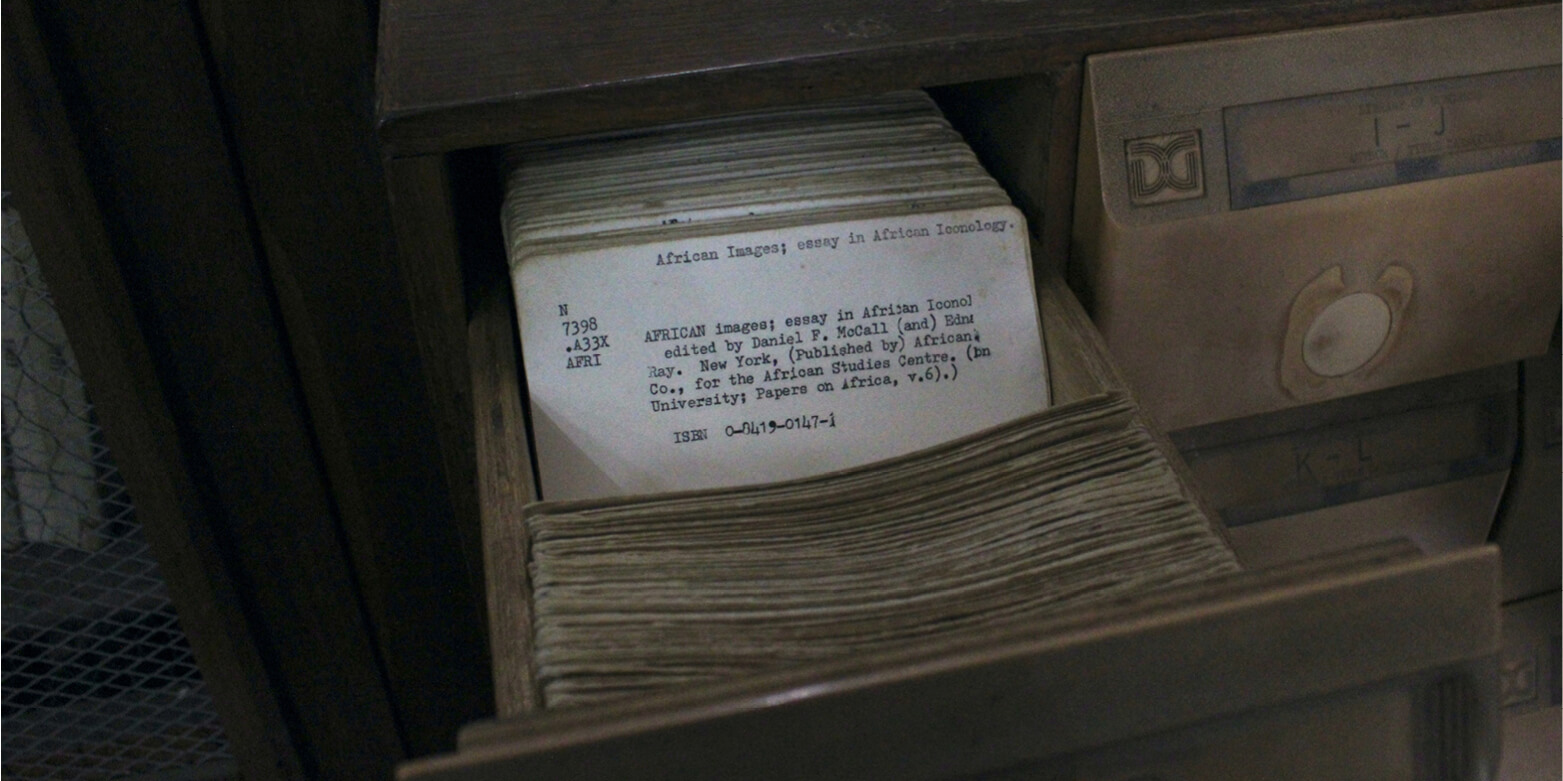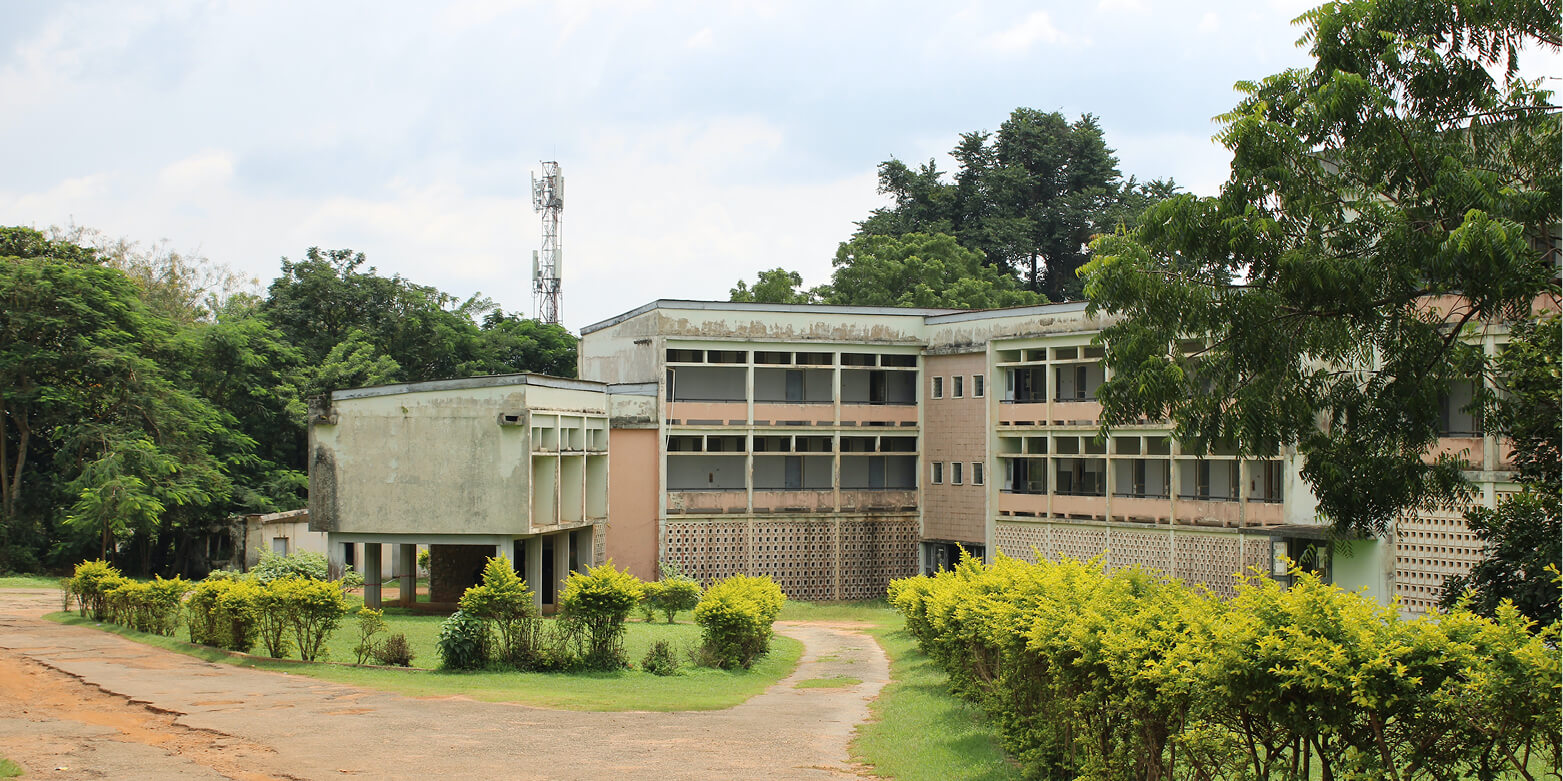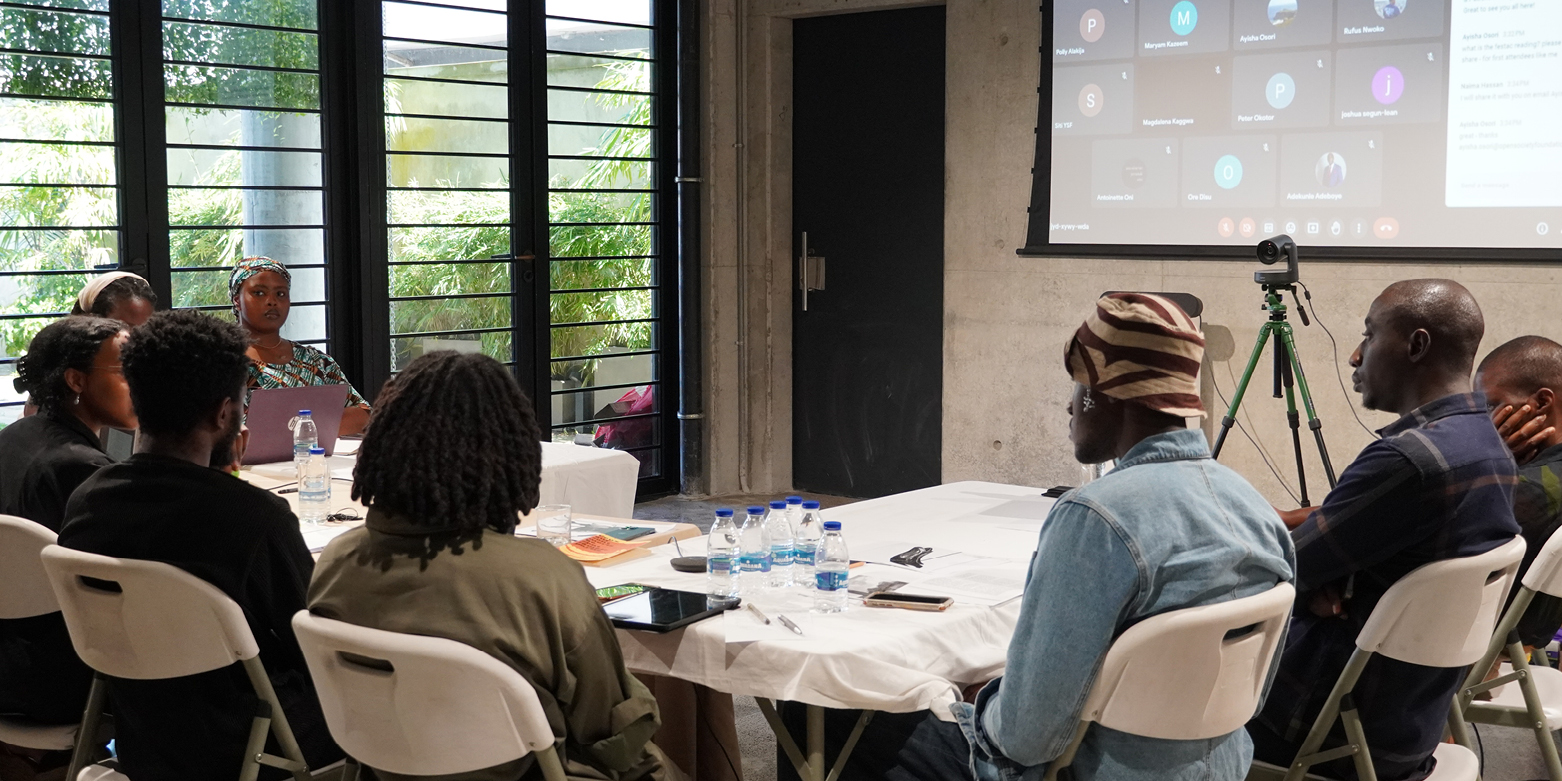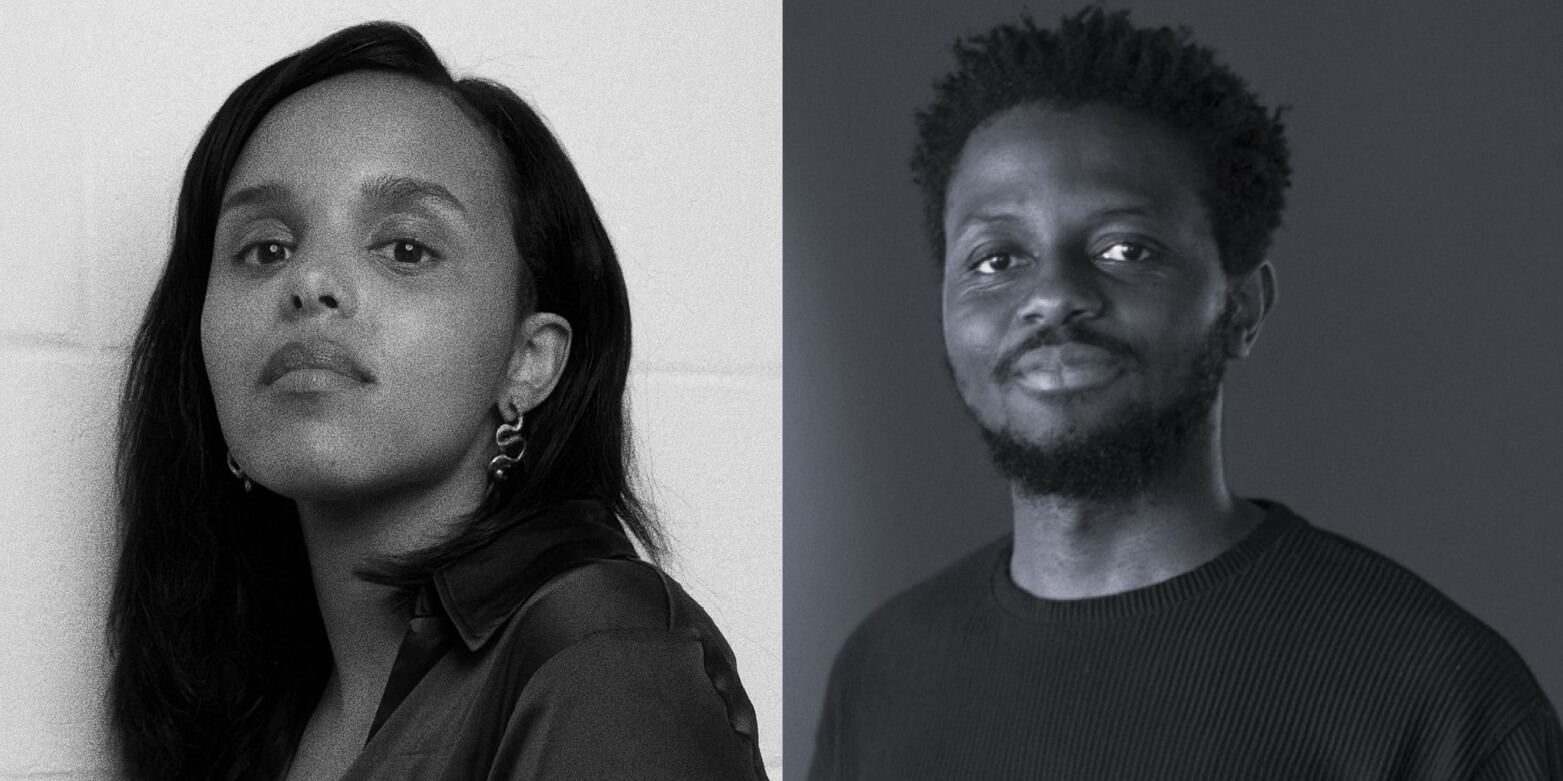In the world of research, archiving, and curation, Naima Hassan and Billy Fowo embark on a residency whose mission is twofold; The first is a shared portion that sees Billy and Naima explore African cultural festival and artist club histories, investigating archives dating back to FESTAC’77 and the legendary Mbari Club. Subsequently, following Billy's departure, Naima's residency enters a focused cataloguing phase, as she begins to organise and install the final portion of the Picton Collection and G.A.S. Library.
Expectations run high for this experience. Naima and Billy seek to expand networks, connecting with supporting institutions, and arranging meetings and visits to various archives, collections, and libraries, fostering a vibrant hub of knowledge and culture. The residency will also provide them with time to traverse critical spaces across Lagos and Oyo such as CCA Lagos, Jazzhole, Centre for Black Culture, and the New Culture Studio, Institute of African Studies Ibadan, expanding their network and strengthening their engagement with the cultural and academic community.
Another aspect of the residency is Hassan’s concluding installation of the G.A.S. Library Picton Collection, unravelling layers of cultural history hidden within its pages. Naima’s goal is to expand the library's reach, weaving new networks and frameworks for research, conservation, and volunteer programs.
In this quest for knowledge and cultural preservation, the duo invites introductions and connections with individuals, networks, and organizations that share their passion for preserving and sharing the rich heritage found within the festivals FESMAN (Dakar) and FESTAC’77 (Lagos), as they use these entry points to develop a multimedia inventory and publication. With this blend of research, curation, and collaboration, Naima and Billy's journey promises to illuminate the past and inspire the future.
What is the current focus of your creative practice?
Naima: I have recently concluded fellowship under my artistic collaboration SITAAD (Leyla Degan and Naima Hassan) in association with Soomaal House of Art and the University of Minnesota’s College of Liberal Arts. The fellowship explored the potential of uncovering colonial archives using sonic methods. The fellowship led to the first presentation of Transmigrating Cassettes, an audio-visual project aiming to explore the audio cassette as an archival and discursive tool.
Billy: My creative practice lies very much within the curatorial field. For the past years, I have been working as a curator at SAVVY Contemporary, conceptually developing and implementing projects both in Berlin and internationally.
 ‘African Images; essay in African Iconology’. Institute of African Studies, University of Ibadan, 2023. Courtesy of Billy Fowo and Naima Hassan.
‘African Images; essay in African Iconology’. Institute of African Studies, University of Ibadan, 2023. Courtesy of Billy Fowo and Naima Hassan.
What drew you to apply for this residency and how do you think it will inform your wider practice?
Naima: The residency was developed to support my ongoing hybrid work as the archivist for the Picton Collection, held at G.A.S. Foundation. The project began with a donation of a lifelong personal library collection of John and Sue Picton in 2022. This autumn will mark the third phase of the project, which will include the first thematic activation of the Picton Collection launching in 2024. The activation programme will position the Picton Library Collection of African Art as a support structure and open repository. Through traveling projects and partnerships, the programme will aim to foster discursive dialogues and actions on African art and arts publishing.
Billy: A colleague of mine did the residency last year, and my collaborator within the project works as an archivist at G.A.S., I have heard good and positive feedback from the residency programme. I hope it enables me to widen my practice as a curator through connections and exchange with practitioners on the ground.
 National Archives of Nigeria, Ibadan, 2023. Courtesy of Billy Fowo and Naima Hassan.
National Archives of Nigeria, Ibadan, 2023. Courtesy of Billy Fowo and Naima Hassan.
Can you give us an insight into how you hope to use the opportunity?
Naima & Billy: We will jointly undertake a research residency at G.A.S. Foundation. Our residency will explore archives connected to FESTAC’77 and FESMAN and associated artist clubs in Lagos, Ibadan, Dakar, and St. Louis.
Naima: The second phase of my residency will focus exclusively on the Picton Library and Archive Collection. In this period, I will be installing the second phase of the collection and developing new library networks in Lagos.
RESIDENCY ARCHIVE
EVENT: Art and Culture Study Group
Event Date: 28th April 2023
G.A.S. Foundation’s archivist Naima Hassan led a hybrid reading group session, uniting Art and Culture Study Group members, G.A.S. residents, alumni, and industry stakeholders. Together, they delved into early writings on restitution through the prism of FESTAC’77 and FESMAN.Naima Hassan and Billy Fowo, during their shared residency at G.A.S. Foundation, inventoried scattered archives and ephemera linked to these pivotal Pan-African festivals. In his segment, Billy Fowo explored the significance of multilingualism and translation in bridging the gaps within performance-based archives, offering profound insights into cultural connections.
The event showcased poignant literary pieces: Alma Robinson's 1977 essay, "African Art in Foreign Hands," published in FESTAC '77, and a selected essay 1966, "Le Cameroun au Festival Mondial des Arts Negres (FESMAN)," published in Abbia Journal. A glimpse into the Picton Collection Archive added a visual dimension to this exploration.

ABOUT NAIMA HASSAN AND BILLY FOWO

About Naima Hassan
Naima Hassan’s research-based practice spans multiple forms, including archival practice, curatorial writing, publishing, and sound. She is cataloguing the Picton Collection, held at G.A.S. Foundation Lagos and tectonik.TOMBWA archive with composer Victor Gama. Together with Leyla Degan she forms SITAAD, an artistic-research collaboration focused on epistemological habitations of colonial archives. Hassan has undertaken residencies and convenings in international settings such as Cittadellarte Fondazione Pistoletto, Research Centre for Material Culture, District Six Museum, Iniva, Nottingham Contemporary, Paris Peace Forum, British Institute in Eastern Africa, International Curators Forum, British Institute in Eastern Africa, and National Maritime Museum. She is a 2022 alumna of TheMuseumsLab jointly organised by the DAAD, HTW Berlin and Museum für Naturkunde. She has undertaken studies at the University of Oxford and Goldsmiths, University of London. In 2023-24 she is a Soomaal House Fellow in association with the University of Minnesota’s College of Liberal Arts Hub Residencies.
About Billy Fowo
Billy Fowo is a curator and writer based in Berlin and working at SAVVY Contemporary – The Laboratory of Form-Ideas, Germany. Very much grounded in the idea of the Laboratory, for Billy Fowo, rethinking and stretching the idea of the exhibition as a format, forms an essential part of his research and curatorial approach. With points of interest in various fields and disciplines such as the sonic, linguistics and literature, Billy Fowo questions through his practice what is considered knowledge and the spaces in which we find knowledge.
Recent projects include It Go Have To Adjust. On Language As Parasite, SAVVY Contemporary (2023), Unraveling The (Under-) Development Complex, An Ode to Walter Rodney’s “How Europe Underdeveloped Africa”, 50 Years On (1972 - 2022), SAVVY Contemporary, Berlin (2022), Wata Go Lef Stone, On the Perpetuity of Accara Across the Oceans, an offering within A Parábola Do Progresso, Sesc Pompeia, São Paulo (2022). Billy Fowo is one of the coordinators of SAVVY Records and is currently a participant of de Appel’s 2023 Curatorial Programme.
This project is financed by the German Federal Ministry for Economic Cooperation and Development (BMZ) through a collaboration between GIZ and Goethe-Institut in association with TheMuseumsLab Alumni Projects.
